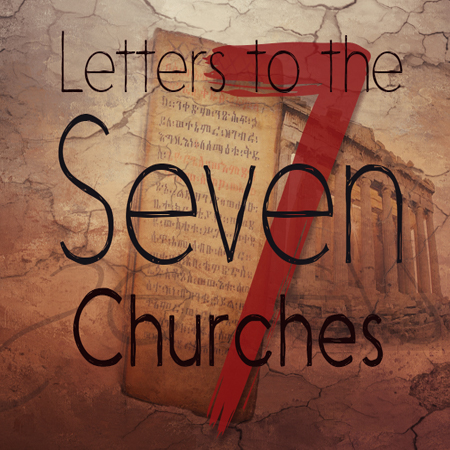I have said these things to you, that in me you may have peace. In the world you will have tribulation. But take heart; I have overcome the world.”
– John 16:33
Before we begin our survey of the letters to the churches in Rev. 2-3 we want to consider the general structure of the letters as well as Jesus’ promise to the ones who conquer. Read individually, the letters certainly display a structure. However, when read sequentially that structure becomes very apparent. As a unit, the letters display a chiastic structure:
A. Ephesus (A church in grave danger from subtle sin)
B. Smyrna (A church enduring faithfully)
C. Pergamum (A church in danger from overt sin)
D. Thyatira (A church in danger from heresy and overt sin)
C. Sardis (A church in danger from overt sin)
B. Philadelphia (A church enduring faithfully)
A. Laodicea (A church in grave danger from subtle sin)
This structure helps us to see that the overall condition of the church is not healthy. Only two of the seven are enduring faithfully, while the other five are in danger either from subtle compromise with the world or open embrace of false teaching or sexual immorality. Given that these churches are to represent the church as a whole, we need to be aware that the church is always under threat both within and without as we seek to be faithful witnesses to the word of God and the testimony of Jesus.
Individually, each letter begins with a command, “To the angel of the church of ___________, write…” and is then followed by a self-description of Christ which is taken from the vision John saw in 1:12-16. Christ then describes the condition of the church in the form of commendation, accusation, or both. He then exhorts them to either repent in light of their sin or to be faithful in the midst of their persecution. Finally, He offers to the churches a promise for those who “conquer” or “overcome.”
It is this final concept of “conquering” or “overcoming” that will be the focus of much of our time together on Sunday. The Greek word νικάω (nikaō) is used 24 times in the NT with 21 of those usages being found in John’s writings. The first use of the term in John’s writings is in John 16:33 where Jesus states that although believers will experience tribulation in this world they are to take heart because Jesus has overcome or conquered the world. For John, Jesus’ overcoming of the world has two phases. The first, mentioned in John 6:33, refers to His death, burial, and resurrection. By His work Christ has redeemed His people and overcome their enemies who will continue to persecute them and seek the destruction of their physical lives. John also, however, anticipates the second and final phase of Jesus’ conquest which will occur upon His return (Rev. 17:14).
In the time between these two conquests, believers are themselves to “overcome” the world (1 John 5:4), false teachers (1 John 4:1-4), and the evil one (1 John 2:13-14). The fact that Jesus has overcome the world through His resurrection and the sure hope that He will conquer His enemies upon His return are to encourage His people and lead them to be His faithful witnesses. In 1 John, the apostle states that the means by which believers overcome are the Word of God (1 John 1:14) and our faith (1 John 5:4).
As we gather together around His world we are to be encouraged in our faith so that we might overcome the world by abiding in Him. Join us this Sunday as we proclaim Christ’s victory over the grave while also anticipating His return to rule and reign!
Soli Deo Gloria.
-Thomas

